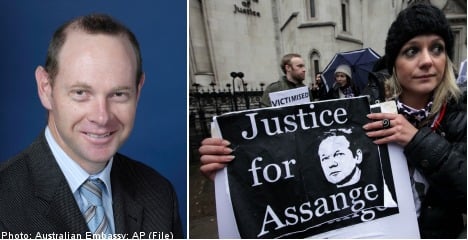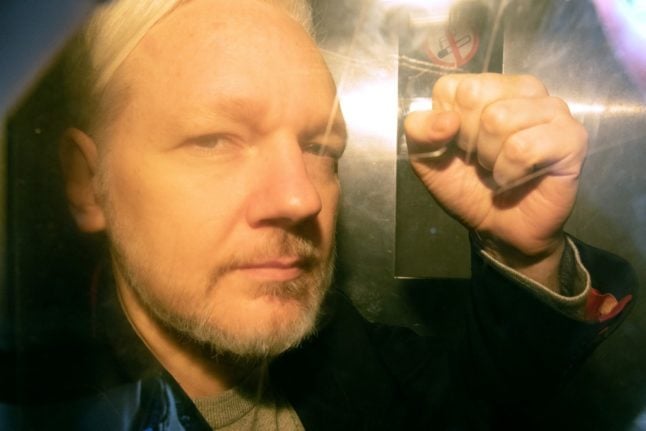In a letter sent to Justice Minister Beatrice Ask last week, Australian ambassador Paul Stephens took up Assange’s case, which the ambassador termed as “high profile”.
“I am writing in relation to the situation concerning Mr. Julian Assange, an Australian citizen who is facing extradition to Sweden from the United Kingdom under the terms of a European Arrest Warrant,” Stephens wrote to Ask last Friday.
Stephens explained that Assange “has been detained in his absence” by a Swedish court on suspicions of having committed “a criminal offence”.
“I wish to convey the Australian Government’s expectation that, should Mr. Assange be brought into Swedish jurisdiction, his case would proceed in accordance with due process and the provisions prescribed under Swedish law,” the Australian ambassador.
He emphasised as well that he expected Assange’s case to adhere to “applicable European and international laws, including relevant human rights norms”.
The letter was written on the same day as Assange’s last court appearance at the end of three days of legal arguments in his extradition trial.
He has been ordered to return to a London court next Thursday to learn if he will be extradited to Sweden to face questioning over sex crime allegations.
Last week, his lawyer, Geoffrey Robertson launched a scathing attack against Swedish Prime Minister Fredrik Reinfeldt after he made comments saying that Sweden does not take women’s rights lightly.
Ask’s press secretary Martin Valfridsson told The Local that Sweden’s justice minister is legally prohibited from interfering in the legal process.
“The minister of justice is not involved in the trial, nor did she ask for the arrest warrant that has been submitted by the Swedish prosecutors,” he told The Local.
“She can’t give any comment on it, but I can confirm that the letter has arrived. We can’t comment on the ongoing process. She is forbidden by the Swedish constitution to have any influence on the ongoing case.”
Assange’s mother Christine has previously appealed to the Australian government for assistance since her son’s arrest.
“Julian did not even get the laptop you had publicly promised him which he needed to prepare for his case while he was in Wandsworth Prison,” she wrote to former Australian prime minister and current Foreign Minister Kevin Rudd.
Attempts by The Local on Thursday to reach a representative at the Australian embassy in Stockholm for comment were unsuccessful.



 Please whitelist us to continue reading.
Please whitelist us to continue reading.
Member comments